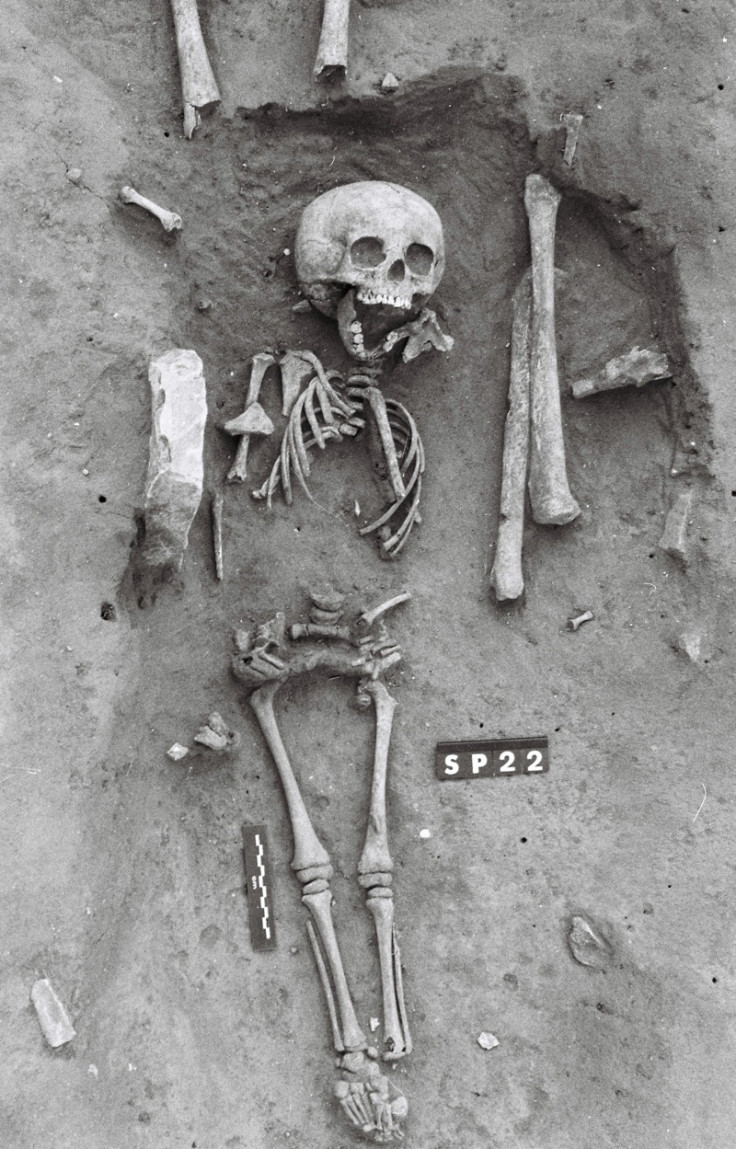French Medieval Skeleton of Child is Oldest Known Case of Down's Syndrome

The oldest recorded case of Down's syndrome has been confirmed following analysis of a skeleton from medieval France.
The 1,500-year-old skeleton was first found near a church in Chalon-sur-Saône in eastern France in 1989. The child was found with 93 other skeletons.
The child was between five and seven years old and had a short broad skull, a flattened skull base and thin cranial bones – features of the genetic condition, New Scientists reports.
Published in the International Journal of Paleopathology, scientists from the University of Bordeaux have now studied the skeleton and concluded that it is likely to be the oldest known case of Down's syndrome.
Scientists say that the way the child was buried strongly indicates that Down's syndrome was not stigmatised by people in the Middle Ages.
Down's syndrome occurs when a person has of all or part of a third copy of chromosome 21. It was first described in the 19<sup>th century but is thought to have existed throughout human history. The child had been placed on its back in the tomb with the head towards the west – in keeping with all of the other people buried there.
"The combination of features is consistent with the diagnosis of Down syndrome, although none is pathognomonic of the disease in isolation," the authors wrote. "Cases of Down syndrome in past populations are rare, frequently poorly described or discovered out of context.
"This case represents the earliest and youngest example of the condition in the archaeological record. The context and funerary treatment of this child suggests that he/she was not stigmatised by other members of the community, who afforded a normal mode of burial."
© Copyright IBTimes 2025. All rights reserved.






















